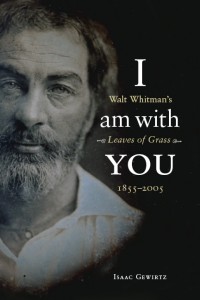Poetry in Translation (CCCXVI): Walt WHITMAN (1819-1892), U.S.A. – “To a Stranger”, “Trecătorule”
Walt WHITMAN (1819-1892),
To a Stranger
PASSING stranger! you do not know how longingly I look upon you,
You must be he I was seeking, or she I was seeking, (it comes to me, as of a dream),
I have somewhere surely lived a life of joy with you,
All is recall’d as we flit by each other, fluid, affectionate,
chaste, matured,
You grew up with me, were a boy with me, or a girl with me,
I ate with you, and slept with you – your body has become not yours only, nor left my body mine only,
You give me the pleasure of your eyes, face, flesh, as we pass- you take of my beard, breast, hands, in return,
I am not to speak to you- I am to think of you when I sit alone, or wake at night alone,
I am to wait- I do not doubt I am to meet you again,
I am to see to it that I do not lose you.
* * * * * * *

Walt WHITMAN (1819-1892)
Trecătorule
Trecătorule, tu nu-mi ştii dorul cu care mă uit la tine.
Tu trebuie să fii cel ce am căutat, sau aceea ce am căutat-o (totul apare ca un vis).
Pe undeva, cândva, ştiu că am împărtăşit bucuria vieţii cu tine.
Totul reapare ca un vis a unei bucurii trăite cu tine…
Totul reapare aşa cum am trecut, o clipă pe lângă tine, fluid, iubitor, pur, matur
Am crescut laolaltă… pentru mine tu erai un fecior, sau o fecioară,
Am împărţit masa cu tine, patul cu tine – corpul tău nu-ţi mai aparţine ţie, asa cum nici corpul meu nu-i doar al meu.
Pe acest drum ce îl urmăm împreună, tu îmi vei oferi plăcerea ochilor, feţei şi fibrei tale, ca să iei în schimb părul, pieptul şi braţele mele.
Va trebui să te aştept – dar mă voi gândi la tine când voi fi singur, sau când mă voi trezi, singur, la miezul nopţii.
Te voi aştepta… Sunt sigur că te voi afla din nou…
Voi face astfel ca să nu te pierd niciodată!
Rendered in Romanian by Constantin ROMAN, London
© 2015 Copyright Constantin ROMAN, London
 SHORT BIO: Whitman’s work breaks the boundaries of poetic form and is generally prose-like. He also used unusual images and symbols in his poetry, including rotting leaves, tufts of straw, and debris. He also openly wrote about death and sexuality, including prostitution.[84] He is often labeled as the father of free verse, though he did not invent it.
SHORT BIO: Whitman’s work breaks the boundaries of poetic form and is generally prose-like. He also used unusual images and symbols in his poetry, including rotting leaves, tufts of straw, and debris. He also openly wrote about death and sexuality, including prostitution.[84] He is often labeled as the father of free verse, though he did not invent it.
Whitman wrote in the preface to the 1855 edition of Leaves of Grass, “The proof of a poet is that his country absorbs him as affectionately as he has absorbed it.” He believed there was a vital, symbiotic relationship between the poet and society. This connection was emphasized especially in “Song of Myself” by using an all-powerful first-person narration. As an American epic, it deviated from the historic use of an elevated hero and instead assumed the identity of the common people. Leaves of Grass also responded to the impact that recent urbanization in the United States had on the masses.



No Comments so far ↓
Like gas stations in rural Texas after 10 pm, comments are closed.